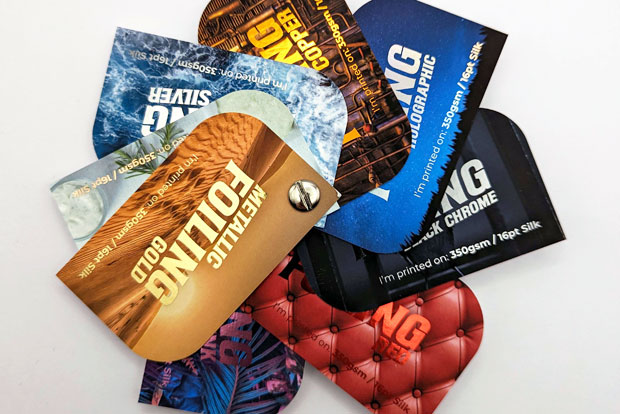How to Advertise for Niche Industries (And Get Leads!)

How to Advertise for Niche Industries (And Get Leads!)
Niche industries cater to a very specific audience, which can make advertising for them both fun and rewarding, but still challenging. This is because in most cases, run-of-the-mill advertising tactics can prove ineffective for niche industries. While this may feel like you’re selling from a marketplace corner to a small group of people, this is advantageous from a marketing perspective.
A niche industry’s strength is specialisation in its product or service, which means fewer competitors to deal with. As a result, marketing for such companies benefits from hyper-focused advertising efforts. This could include narrowing your brand messaging to address specific challenges or needs of customers, offering the exact solution your target market is looking for.
From creating tailored promotional materials and targeted ads to effective SEO tactics and micro-influencers, you can use a variety of marketing strategies to generate high-quality leads.
In this article, we explore a few ideas that’ll help you advertise your niche industry for maximum impact.

1. Customised Promotional Materials
Want to build brand awareness and create meaningful, high-impact in-store experiences for your customers? Consider leveraging the power of customised promotional materials for effective retail marketing that drives customer action. You can curate an engaging and interactive experience by creatively using custom flags, signage and banners for seasonal campaigns or industry events.
The use of promotional materials this way can educate consumers about your products and services. You can also use retail marketing materials to highlight limited-time offers or limited-edition products. Employ call-to-actions, consistent visuals, and clear messaging to reinforce your branding.
For example, a smartphone accessories brand can use custom signage and branded floor decals that lead to a hands-on demo station where customers can try out the product.
2. Refine Your Brand Messaging
Niche industries cannot afford to use standard marketing language, using generic terms for their brand messaging. This is because, as a niche industry, your target audience wants your brand to specifically cater to their needs, be seen and understood. Refining your brand message with insights and industry-specific terminology that resonates with them would be a good idea.
Doing this can help establish brand credibility as an industry insider who knows their product or service well, as opposed to an industry outsider who’s just looking to sell. You could also try highlighting your product or service’s benefits that address your target audience’s pain points rather than talking about generic features.
For example, if your niche is welfare cabins for construction businesses, like cabin solutions, you could try something like this: “Looking for efficient and sustainable site cabins? We deliver plug-and-play units tailored to your site’s layout, budget, and timeline.”

3. Leverage Social Media
Social media has transformed the way brands advertise online and has brought about a paradigm shift in digital marketing. For niche industries, you can leverage social media effectively if you do away with mass marketing strategies and use hyper-targeted social media ads instead. This includes targeting consumers by interests, locations, job titles and followers of your brand’s competitors.
You could also try creating engaging visuals that best capture your brand’s vibe, tone and culture to attract the right audience. While people will scroll past general ads, they’re most likely to pause and engage with advertisements curated this way and are highly relevant to them.
For example, a garage software company can run industry-specific social media ads on platforms like LinkedIn and Facebook, targeting auto-repair shop owners. Visual copies can highlight key software features that are solutions to common problems garage owners face. By crafting and delivering targeted ads like this, you maximise your reach to the right audience and improve your ROI.
4. Amp Up Your Brand Engagement with Influencers
Want your niche industry to improve engagement rates? Then, consider partnering with an influencer. Influencer marketing has shown great success and works wonderfully well for niche brands. This is because authenticity and community influence matter when marketing and advertising to a focused audience. Influencer collaborations can help you tap directly into your target customer base without you having to waste resources on broader ads.
Since influencers hold considerable sway and trust over tight-knit communities, their recommendations are always received well by consumers. These recommendations are viewed as trusted referrals rather than a sales pitch. This can help brands generate genuine interest, boost credibility and attract organic customers.
Consider partnering with micro-influencers. They’re more likely to have an audience that is more invested in their content. This means you can access potential consumers through your micro-influencer’s audience, who are more likely to engage and try out your product or service. This can be an important factor for a niche brand or industry that’s looking to improve engagement rates while gaining quality leads.
5. Boost SEO with Long-Tail Keywords
AI-powered searches have brought about changes in SEO, where search patterns are evolving to be more natural and detailed. This aligns perfectly with long-tail keywords, which are proving to be valuable for marketing. It is especially helpful for niche industries and brands. Long-tail keywords are specific phrases rather than generic keywords that allow you to reach target demographics better.
Using them to optimise your website allows you to be cited in AI searches. Recent marketing studies show that AI’s comprehensive search is pulling information from broader sources, up to 151% from unique websites that utilise long-tail keywords. This can help your industry or brand website rank better and deliver products and services more effectively to your target audience.
Since they’re highly specific keywords, you’ll also be appealing to consumers who are aware of pain points and are seeking solutions. This means catering to an audience that’s ready to purchase your product or service. By using long-tail keywords, you attract high quality leads while boosting your conversion rates.
For example, if your niche industry is flags, consider using a long-tail keyword like “custom flags for British motorcycle racing club bike championships.” Though this has a lower search volume, it has less competition and is more intentional, making it easier for you to rank higher in search results.

Conclusion
Advertising for niche industries is all about targeted messaging and consistent visuals for a specific audience. Think of it as customising and tailoring every aspect of your marketing strategy to deliver highly impactful content with zero fluff.
Using this approach can help you create effective marketing campaigns that resonate with your intended audience. By curating ads this way with precision, you get to position your brand as the industry expert, capturing quality leads and organic consumers.
We hope this article has provided you with ideas to make your niche industry marketing campaign a successful one.
Guest Article.




